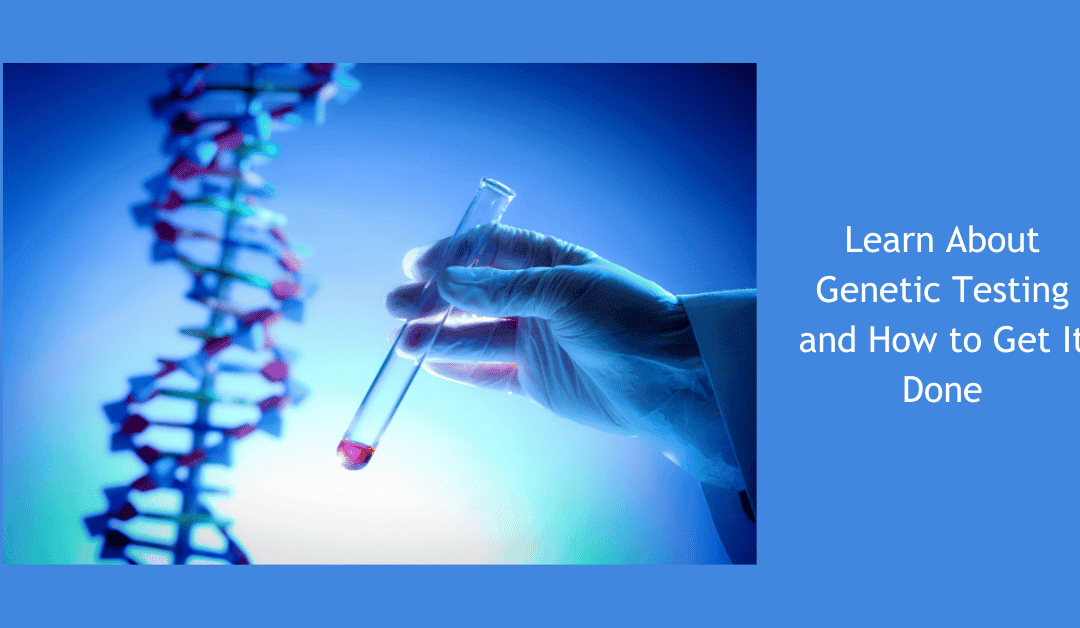
by Bag It Team | Aug 4, 2023 | Educational Articles
You may worry that having cancer could mean your children will get cancer too. Cancer itself is not passed down (inherited) from parents to children. But a genetic change (mutation) that increases the risk (possibility) of cancer can be passed down if it is present in a parent’s egg or sperm cells. While most cancer is due to random chance or environmental risk factors, up to 10% of all cancers may be caused by inherited genetic changes.
If a person inherits a genetic change from a parent, it does not mean they will definitely get cancer, but the risk (chances) is higher. It also means that their parents,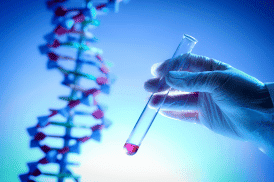 children, and brothers and sisters have a 50% chance of having the same genetic change and a higher risk of getting cancer. Their blood relatives on that side of the family (mother’s side or father’s side) like aunts, uncles and cousins may also have the same genetic change. Genetic testing for hereditary cancer can help a family to learn which, if any, relatives have a higher chance of getting cancer. It can also bring relief when there is no inherited cancer in the family.
children, and brothers and sisters have a 50% chance of having the same genetic change and a higher risk of getting cancer. Their blood relatives on that side of the family (mother’s side or father’s side) like aunts, uncles and cousins may also have the same genetic change. Genetic testing for hereditary cancer can help a family to learn which, if any, relatives have a higher chance of getting cancer. It can also bring relief when there is no inherited cancer in the family.
Even when there is no gene mutation found in a family, sometimes cancer is more common than expected. This is called familial cancer, and happens in up to 20% of all cancers. It is not known why familial cancers happen. Some possible reasons are unknown genetic risk factors not yet included on genetic testing or lifestyle or environmental factors shared by multiple family members.
If you have been diagnosed with cancer or have a family history of cancer, genetic testing may be useful to find out if hereditary cancer is in the family. Genetic testing can give your family members useful knowledge about their health so they can take steps to lower their risk of getting cancer through lifestyle changes, health screenings, and other medical care recommended by their doctor. Ask your doctor if genetic testing is appropriate for your family’s situation.
Genetic Testing
Genetic testing does not prevent or treat cancer. It is a laboratory test that looks for changes (mutations) in a person’s genes that could help:
- Show if they have a higher risk for certain cancers.
- Learn if this increased risk could be passed to children or other family members.
- Change medical care, including knowing better about when to screen for cancer, and how frequently.
Genetic testing does not say if someone has cancer, or that they are guaranteed to have cancer. But it can tell you if you have a higher risk than most people.
Testing is usually done with a small sample of blood, but it can sometimes be done with saliva, cells from inside the cheek, or skin cells. It will usually take several weeks to get the results.
Not everyone needs to get genetic testing. Ask your doctor if this type of testing could benefit you and your care.
Making Decisions About Genetic Testing
To decide if genetic testing is recommended for you, your doctor will have a conversation with you to understand your risk and your family’s history with cancer. They will ask you for important details such as which blood relatives were diagnosed with cancer, their age at diagnosis, and what kinds of cancer they had. Some people feel uncomfortable discussing their family members’ health with others, but keep in mind that your healthcare team wants to help and honor you and your family.
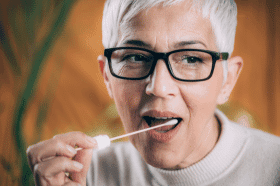 Based on the family health information you explain to your doctor, a genetic counselor can be very helpful. A genetic counselor is a healthcare professional with specialized training in genetics and counseling to support patients wanting more information about how inherited conditions might affect them or their families. Genetic counselors also explain the meaning of genetic test results in the context of a patient’s family history, and help patients and their families understand this information. They will describe the genetic testing in detail, including the pros and cons of testing, and exploring psychosocial implications of genetic testing before you make this personal decision. If testing is done, they can explain what the results mean for you and for your family.
Based on the family health information you explain to your doctor, a genetic counselor can be very helpful. A genetic counselor is a healthcare professional with specialized training in genetics and counseling to support patients wanting more information about how inherited conditions might affect them or their families. Genetic counselors also explain the meaning of genetic test results in the context of a patient’s family history, and help patients and their families understand this information. They will describe the genetic testing in detail, including the pros and cons of testing, and exploring psychosocial implications of genetic testing before you make this personal decision. If testing is done, they can explain what the results mean for you and for your family.
Cancer can be very overwhelming and knowing that there is a chance that it runs in your family can be difficult. To begin with, you did not cause your cancer, and getting cancer is not your fault or anyone else’s fault. It is important to take it one step at a time and remember that there are professionals who can help you and your family with your concerns.
If you are tested, keep a copy of your report to find out what tests were given and what the results were. Keep this as part of your permanent health record.
Additional Resources
Find genetic counselors | https://findageneticcounselor.nsgc.org/
Learn which cancers have genetic tests | https://www.cancer.net/navigating-cancer-care/cancer-basics/genetics/genetic-testing-cancer-risk
Frequently asked questions about genetic testing | https://www.cancer.gov/about-cancer/causes-prevention/genetics/genetic-testing-fact-sheet
How to get genetic testing | https://www.facingourrisk.org/info/hereditary-cancer-and-genetic-testing/how-to-get-testing/where-to-get-testing

by Bag It Team | May 4, 2023 | Educational Articles
May is Skin Cancer Awareness Month
As spring gets into full swing and we all look forward to spending time outdoors, being smart about sunscreen is one of the best ways you can prevent skin cancer. To get all the protection sunscreen offers, here are a few tips to help your skin stay healthy:
- Use a broad spectrum, 30 SPF sunscreen every day of the year–even when you are nowhere near the water.
- Apply the sunscreen 15-30 minutes before you go outside so it gets absorbed and fully protects you. The sun’s rays damage your skin in as little as 15 minutes.
- Don’t use old sunscreen. Many sunscreens don’t have an expiration date but the protection will be its strongest for about three years. Tip: Write the purchase date on the bottle.
- Most people don’t use enough sunscreen. Use 1 ounce (picture a shot glass of sunscreen) to fully cover an adult body. Ears, eyelids, lips, scalps, feet and necks are the most forgotten areas that suffer sun damage.
- Sunscreen application is not a “one and done” process. Reapply the sunscreen every two hours, especially if you have been swimming or sweating.
The Centers for Disease Control also recommend that you stay in the shade, wear clothing that covers your arms and legs, a hat with a wide brim to shade your face, head, ears, and neck and sunglasses that wrap around as well as block both UVA and UVB rays.
Enjoy your summer!
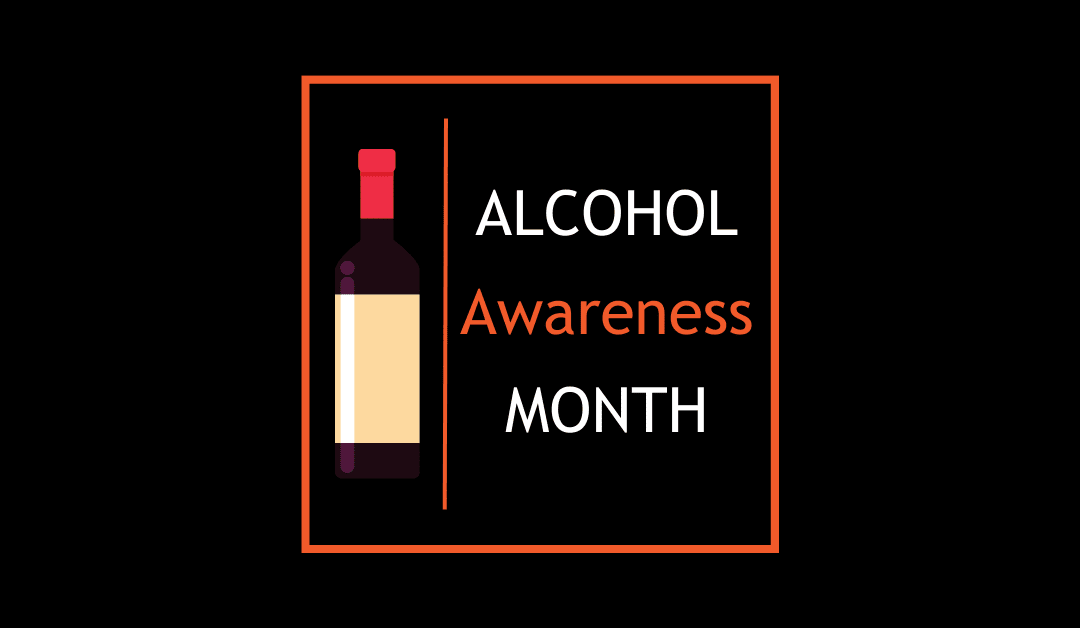
by Bag It Team | Apr 6, 2023 | Educational Articles
The advice on alcohol use can be confusing. One day there’s a research study touting some health benefits of moderate alcohol consumption (particularly red wine), and the next day another study reports that all alcohol is bad for you. One fact that is not disputed is that the less you drink, the lower your risk for developing cancer.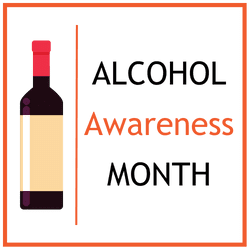
April is Alcohol Awareness Month and a good opportunity to take a look at our drinking patterns through the lens of cancer risk to decide if making different choices might be in order.
Most people don’t have a problem with alcohol, but thinking about when, where, why, and much you drink can give insights about the role alcohol plays in your life and your health.
Here are some resources from authoritative organizations to help answer questions you might have about alcohol and its role in cancer risk.
- Rethinking Drinking is a resource that can help you assess your drinking habits and provide valuable, research-based information to help you cut back or stop drinking if needed. It is available online as an interactive tool and as a brochure.
- American Institute for Cancer Research–Alcohol and Cancer Prevention
- Center for Disease Control–Alcohol and Cancer
- Are you worried about a loved one’s drinking? Use these tips to talk with someone about cutting back or quitting drinking.
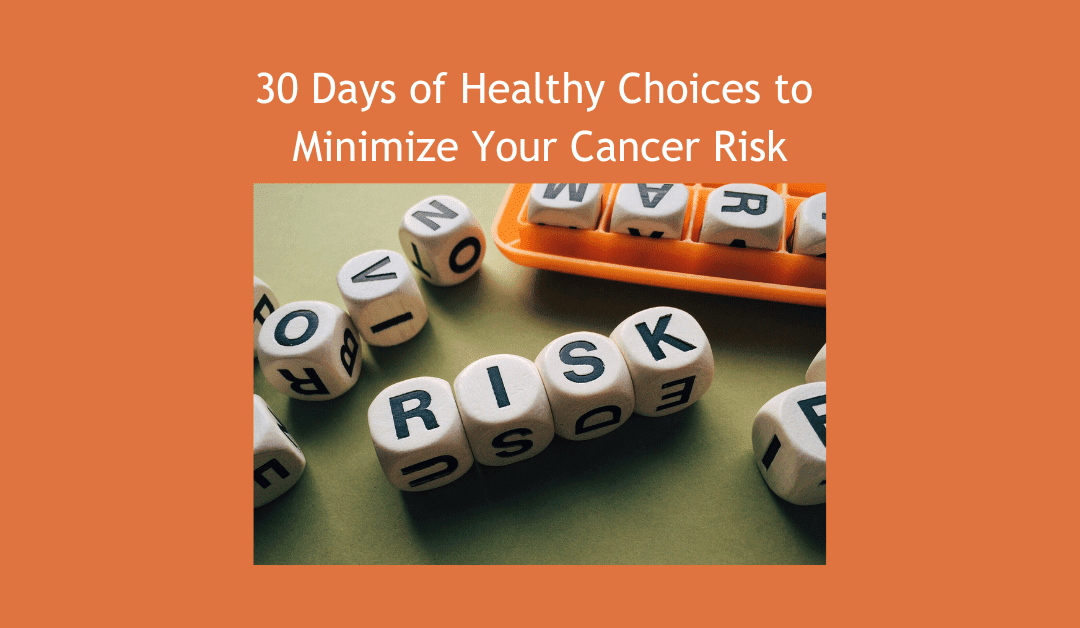
by Bag It Team | Feb 8, 2023 | Educational Articles
Some good news about cancer…
It is estimated that nearly half of cancer deaths worldwide can be prevented, according to recently published medical research. Some cancers are out of our control, but we can make choices about our habits and the way we live to reduce our risk of cancer. Here are some examples:
- Don’t use tobacco
- Protect your skin from the sun
- Eat a plant-based diet
- Limit alcohol
- Maintain a healthy weight and move, move, move
- Get vaccinated against HPV and hepatitis B
- Practice safer sex and avoid risky behaviors
- Reduce your exposure to indoor and outdoor air pollution
Finally, know your family medical history and share it with your doctors. Most people do not have a family history of cancer so getting the cancer screenings your doctors recommend for your particular situation is important. Early detection can lead to better outcomes.
The American Institute for Cancer Research offers a free 30-day checklist to help you eat well, move more and make healthy lifestyle choices to reduce your cancer risk. Find it here along with other cancer prevention resources.
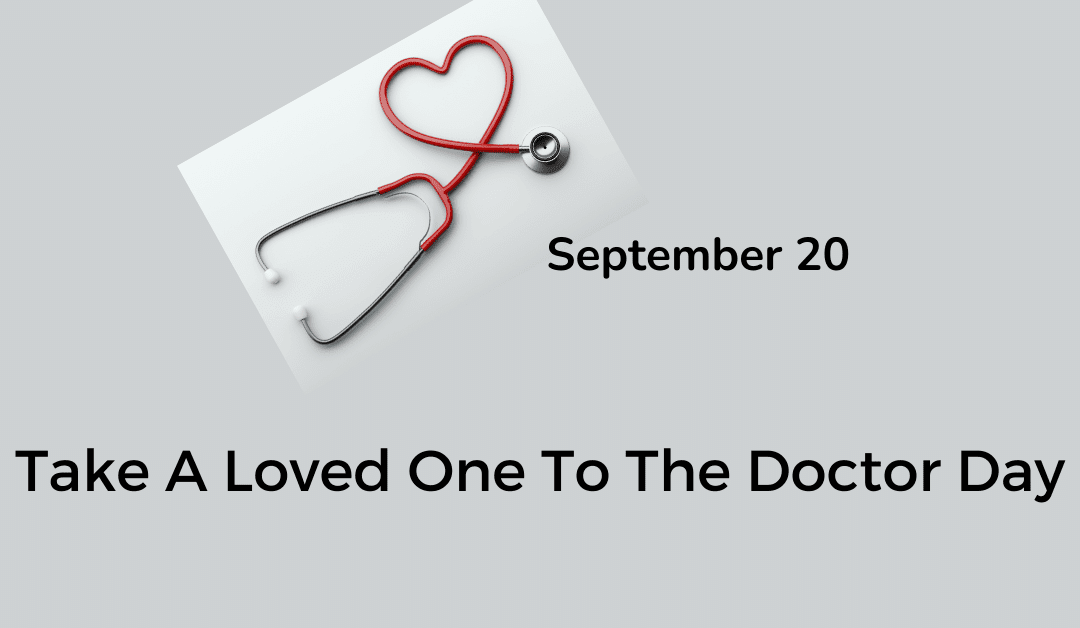
by Bag It Team | Aug 31, 2022 | Educational Articles
September 20 is Take a Loved One to the Doctor Day. It’s a day set aside to remind us that some of our loved ones may need a little help when it comes to seeing a healthcare provider. Many people skip regular check-ups or wait until there is an emergency to visit a doctor. This could put them at risk for serious health issues.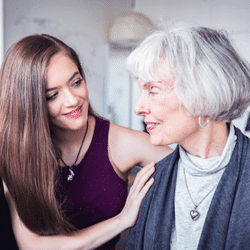
There can be many issues holding someone back from a visit to the doctor’s office. Fear of doctors, needles, or tests. Access or not having a general practitioner they know. Concern about insurance coverage or other costs. Not having the time or not being in the habit of regular check-ups. Whatever is holding them back, having some extra support and encouragement could help them to schedule a much-needed visit.
When starting the conversation make sure to ask your loved one about their current health needs and write down any concerns they have regarding a visit. It can be a delicate conversation but here are some resources to help guide you.
“Most people don’t bring up the idea of going to the doctor in regular conversation. Days like Take a Loved One to the Doctor offer the opportunity to have those discussions with someone who might be resistant to get a routine check-up.”
—Dr. Rupesh Parikh, Comprehensive Cancer Centers’ Practice President
Resources To Help Your Loved One
This AARP guide provides advice regarding how to talk to your loved one about going to the doctor, being prepared for your appointment and other useful resources. They recommend that “you might need to turn on your powers of persuasion to get your loved one to agree to see a doctor. Many people have a long list of reasons for avoiding doctors’ visits. Don’t fight every point.”
The Comprehensive Cancer Center recommends teamwork, incentives and setting up the appointment once they agree.
Once the appointment is made, the American Cancer Society has some great tips for before, during and after the visit.
The Bag It Guidebook includes forms for medications, insurance contacts, medical information, list of questions, and an appointment summary log to help you prepare for, interact during and summarize the appointments. If you don’t have a Bag It bag, you can download the forms from our website.
“Most people don’t bring up the idea of going to the doctor in regular conversation,” said Dr. Rupesh Parikh, Comprehensive Cancer Centers’ practice president. “Days like Take a Loved One to the Doctor Day offer the opportunity to have those discussions with someone who might be resistant to get a routine check-up.”

 children, and brothers and sisters have a 50% chance of having the same genetic change and a higher risk of getting cancer. Their blood relatives on that side of the family (mother’s side or father’s side) like aunts, uncles and cousins may also have the same genetic change. Genetic testing for hereditary cancer can help a family to learn which, if any, relatives have a higher chance of getting cancer. It can also bring relief when there is no inherited cancer in the family.
children, and brothers and sisters have a 50% chance of having the same genetic change and a higher risk of getting cancer. Their blood relatives on that side of the family (mother’s side or father’s side) like aunts, uncles and cousins may also have the same genetic change. Genetic testing for hereditary cancer can help a family to learn which, if any, relatives have a higher chance of getting cancer. It can also bring relief when there is no inherited cancer in the family. Based on the family health information you explain to your doctor, a genetic counselor can be very helpful. A genetic counselor is a healthcare professional with specialized training in genetics and counseling to support patients wanting more information about how inherited conditions might affect them or their families. Genetic counselors also explain the meaning of genetic test results in the context of a patient’s family history, and help patients and their families understand this information. They will describe the genetic testing in detail, including the pros and cons of testing, and exploring psychosocial implications of genetic testing before you make this personal decision. If testing is done, they can explain what the results mean for you and for your family.
Based on the family health information you explain to your doctor, a genetic counselor can be very helpful. A genetic counselor is a healthcare professional with specialized training in genetics and counseling to support patients wanting more information about how inherited conditions might affect them or their families. Genetic counselors also explain the meaning of genetic test results in the context of a patient’s family history, and help patients and their families understand this information. They will describe the genetic testing in detail, including the pros and cons of testing, and exploring psychosocial implications of genetic testing before you make this personal decision. If testing is done, they can explain what the results mean for you and for your family.





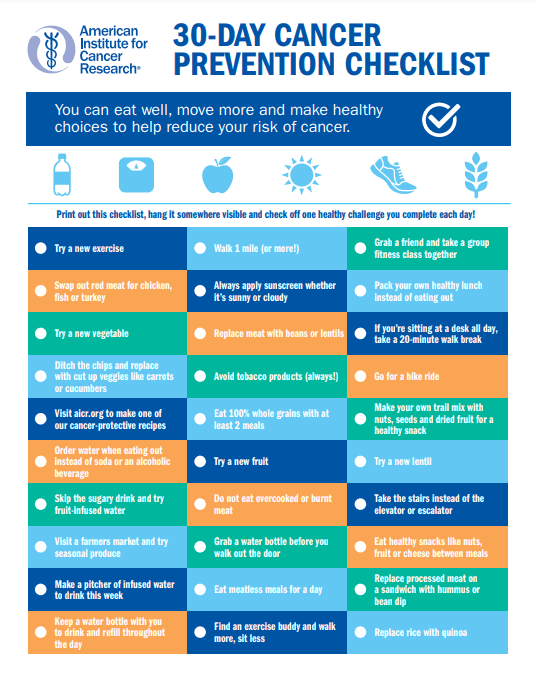


Recent Comments